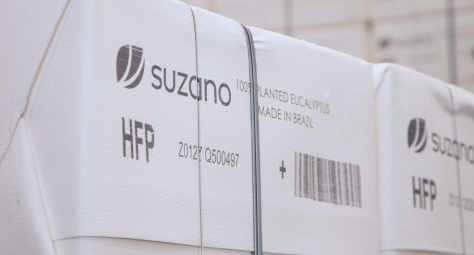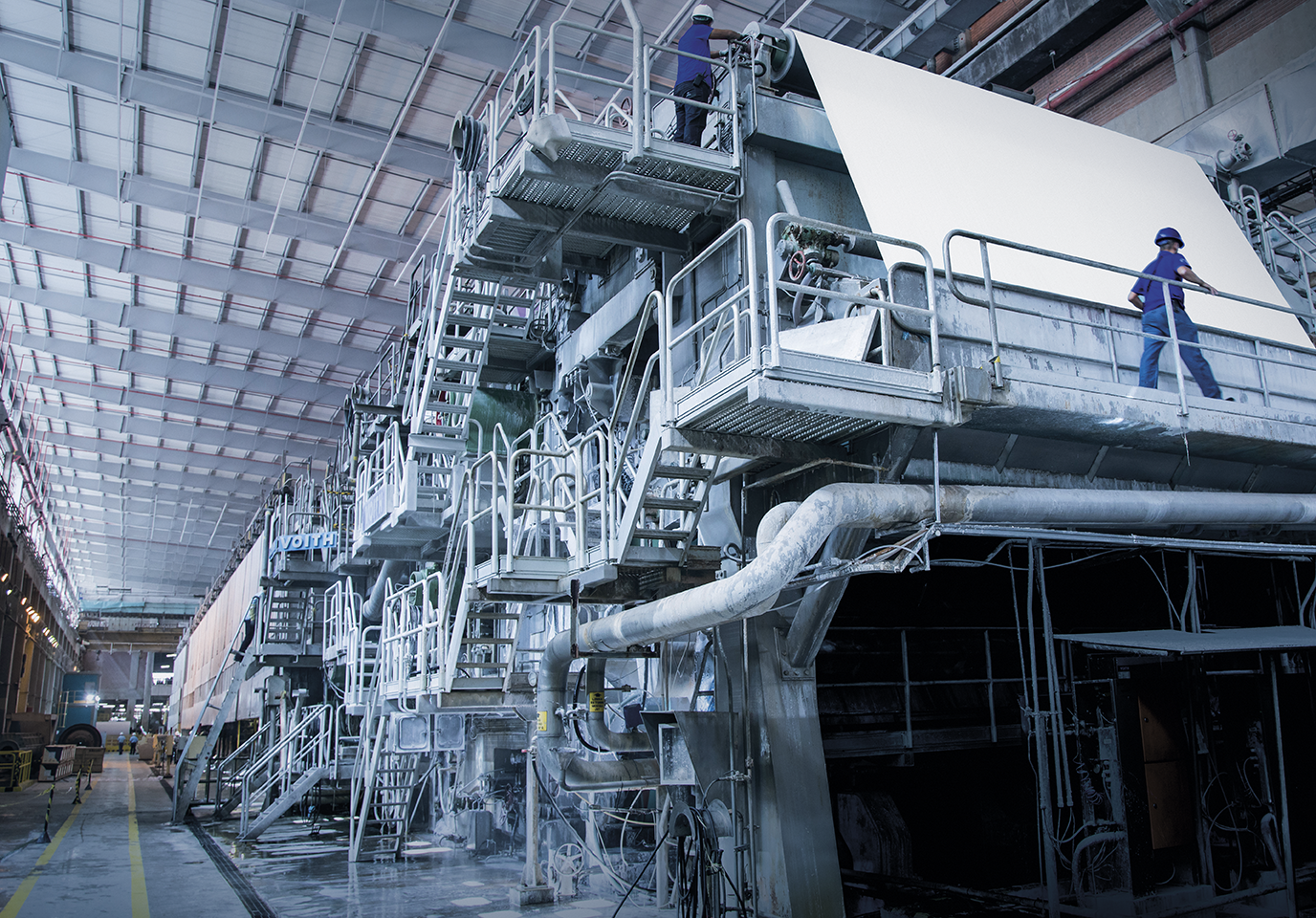sobre o que você deseja falar?


perguntas, sugestões ou problemas técnicos envolvendo a plataforma

informações sobre a empresa


Commitments to Renewing Life
For planet
Click below to know more
18.6 %
Ensuring the renewal cycle of water is essential for life on the planet and for our production process. Eucalyptus and native forests play a crucial role in this cycle. Our forests cover more than 2 million hectares in Brazil, and some territories are subject to water shortages due to natural characteristics. The effort to take care of this resource is everyone's responsibility.
We mapped all the watersheds in which Suzano operates and selected three main criteria for classifying critical watersheds: historical hydrological monitoring data, complaints from communities in the region, and the relevance of the company's occupation. We selected 44 critical watersheds¹ and carried out a diagnosis for each watershed, with technical recommendations for management actions that directly impact the water balance. Among the main ones, we would highlight the demobilization that provides for the closure of Suzano's operations in some areas, the application of an age mosaic to reduce the pressure of water demand, and the reduction of planting density, which reduces the number of trees in the same area. In this way, the company has committed to anticipating and applying local mitigating and/or transforming measures to prevent water restriction events.
Implementation of forest management recommendations in Suzano's plantation areas, with the aim of increasing water availability in the 44 watersheds classified as critical. Our operations are located in 88,400 hectares of this area.
Implement forest stewardship actions² aimed at increasing water availability in the basins mapped as critical by 2030
In 2024, we made significant progress in achieving the Commitment, with 53% more than expected for the year. This amounted to a total of 8,757 hectares, with a focus on the action of mosaics of plantation ages.
A significant challenge of this Commitment is monitoring water availability on a large scale. To this end, work has been done to create an innovative and pioneering platform for the forestry sector, with technology for measuring water in the forest using satellites. This is a co-development partnership between Suzano and the startup Marvin Blue, a Suzano Ventures investment portfolio company. The tool will allow hydrological monitoring to be expanded, contributing to measurement after implementing management actions, which is the scope of the goal.
Recognizing the importance of springs and their role as primary sources of water supply and rivers, in 2024, we implemented a new strategy to promote the protection and revitalization of these natural water sources, especially those located in the target critical basins.
So, we carried out a pilot project in springs in areas of native vegetation in the Atlantic Forest biome (Espírito Santo). Based on a diagnosis of the environmental quality of 100 springs, an artificial intelligence model was developed with the aim of mapping springs and increasing the effectiveness of actions to preserve these bodies of water. The model will help improve efficiency and reduce costs in the current process, which requires human resources for on-site diagnosis. We intend to advance this strategy in other biomes that Suzano occupies as part of the company's sustainable management of water resources.
In 2024, Suzano joined The Nature Conservancy (TNC) and became part of the Coalition for Water. This initiative aims to develop mechanisms to conserve water resources in river basins in areas of high water stress in the Atlantic Forest, Cerrado, and Amazon biomes. It will give visibility to the actions of this Commitment.
| 2020 | 2021 | 2022 | 2023 | 2024 | Cumulative | |
|---|---|---|---|---|---|---|
|
Percentage of Managed Areas (%) |
0.00% |
7.30% |
0.90% |
0.50% |
9.90% |
18.60% |
|
Managed Areas (ha) |
0,00 |
6492.00 |
792.00 |
442.00 |
8757.00 |
16483.00 |
In 2025, the main actions planned are:
All the actions contribute, directly or indirectly, to our goal of increasing water availability in Suzano's areas located in critical watersheds, i.e. those most at risk of water scarcity.

Connect half a million hectares of priority areas for biodiversity conservation in the Cerrado, Atlantic Forest, and Amazon.

Remove 40 million tons of carbon from the atmosphere by 2025...

Make available 10 million tons of renewable-source products that can replace plastic and other petroleum-based products by 2030.


Increase water availability in all the critical watersheds¹ in Suzano's areas of operation by 2030 and reduce by 15% the water captured in our industrial operations...
73.3 %
Ensuring the renewal cycle of water is essential for life on the planet and Suzano's production process. We operate within the best international water use practices in the industry, established by the Integrated Pollution Prevention and Control (IPPC) and the International Finance Corporation (IFC). We believe that reducing water consumption in our operations is fundamental to reducing the water footprint of our products and helping to reduce the risk of water scarcity in the regions where we operate.
The commitment covers specific water withdrawal (m³/t) and total water withdrawal (m³) per ton of saleable pulp and paper from all Suzano industrial units.
Reduce water withdrawal in industry by 15% per ton of product - from 29.8 m³/t to 25.3 m³/t by 2030²
Specific water withdrawal in 2024 was 26.5 m³/ton, a 73% increase from the baseline.³
Despite a very challenging year, with eight general shutdowns at Suzano units - periods in which specific consumption tends to increase, as there is continuous use of water even without production - the result was in line with the established target. Various initiatives to improve processes and modernize made it possible to make significant progress in the results of the Aracruz and Mogi das Cruzes, Três Lagoas, and Jacareí units.
It is worth noting that the data from the Ribas do Rio Pardo unit was not included in the calculation of the Commitment's results due to the inherent instability of the plant's start-up, which is still underway in 2024. However, monitoring performance over the first few months of the plant's operation confirms the initial expectation that water consumption will be lower than Suzano's current average, contributing positively to the target.
| 2018 | 2019 | 2020 | 2021 | 2022 | 2023 | 2024 | |
|---|---|---|---|---|---|---|---|
| m³/t | m³/t | m³/t | m³/t | m³/t | m³/t | m³/t | |
|
Amount of water withdrawal from industrial operations (m³/t) |
29.80 |
29.40 |
28.60 |
26.30 |
25.90 |
26.70 |
26.50 |
We will continue to conduct feasibility analyses to introduce technologies that contribute to good management and efficiency in water consumption. We will also continue to monitor the performance of the Ribas do Rio Pardo unit, expecting the positive impact of including its results in calculating the Commitment in 2025.

Connect half a million hectares of priority areas for biodiversity conservation in the Cerrado, Atlantic Forest, and Amazon.

Remove 40 million tons of carbon from the atmosphere by 2025...

Make available 10 million tons of renewable-source products that can replace plastic and other petroleum-based products by 2030.


Increase water availability in all the critical watersheds¹ in Suzano's areas of operation by 2030 and reduce by 15% the water captured in our industrial operations...